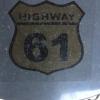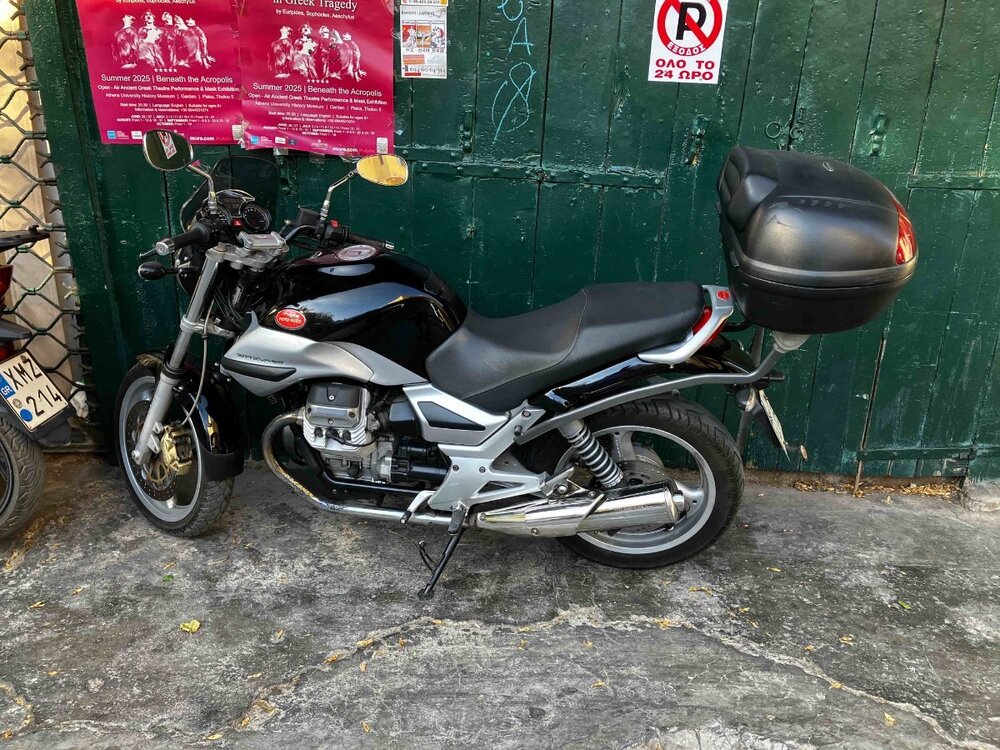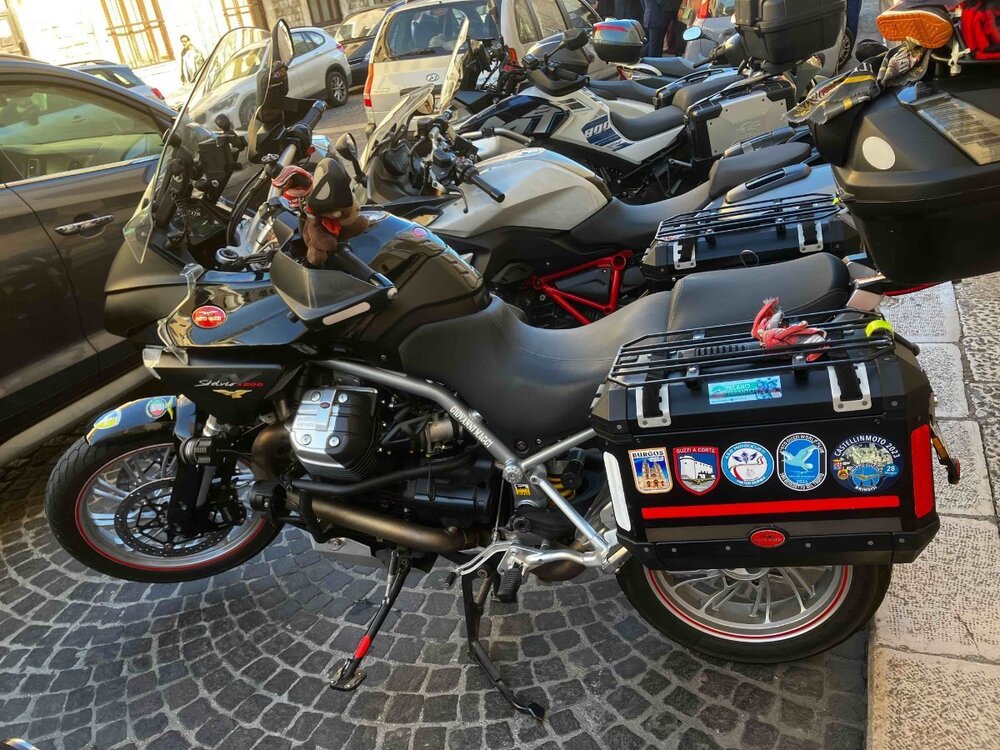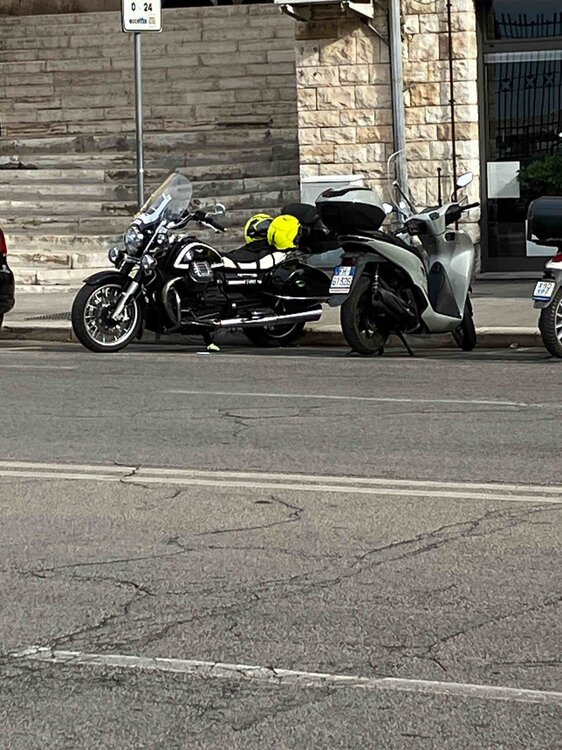All Activity
- Past hour
-
What about adding, to the ethanol-free fuel, a product like "Sta-Bil" fuel stabilizer?
-
Why not? If you can deal with Guzzi electrics, reading music should be easy as pie.
-
makes sense, and thats what i've done in the past, but never for as long. was just wondering if there were any other nifty hacks for that kind of thing. i'll drain and refill with fresh petrol... Probably the best habit to establish for this machine anyway, as it presumably will never be a regular rider bike, even when i've done what i'm going to do with her.
-
I don't read music, but I see a lot "whip-chow" . . .
-
Well, you may find it hard to believe, but Zappa was always radical, adventurous, experimental, brilliant, but strictly tonal. If you want atonal, try this. And that is not his most radical piece. : There are also things like this And Schönberg was a pioneer, but he was not alone.
-
I like how these guys follow “The "rules" of western tonal music”
- Today
-
Haha - yeah, "music is just A-B-C-D-E-F-G" as some smartaxx musician once told me. But, like, NEVER in that order. I thought neurophysiology was complicated. Until I picked up string instruments.
-
I beg to differ. The "rules" of western tonal music adhere to strict rules that are based in physics. Believe me, I have a Bachelor degree in music with a focus on 20th century music. Quite apart from that, it seems to me a paradox that the U.S.A. staged an heroic revolution to release themselves from the yoke of british imperialism, but didn't go the whole 9.144 metres and adopt the much more logical and sensible system that was proposed in France about a century earlier, and finalised about the same time as the revolution. PS: Australia is still nominally a "British Colony", but the sensible system of measurement was adopted about the end of the '60s, when I was about 7 years old.
-
Well there's the crux of it. Music isn't sensible. So we didn't convert to a system that accommodates both Beethoven and Thelonious Monk.
-
Well, yes, as well. https://en.wikipedia.org/wiki/Metre_(music)
-
Isn't 'metre' a musical measurement?
-
Free to steal. Though 'intermittent Honkiness' came to mind.
-
Yes, I understood that. But what about sensible units, you know, millimetres and so on. Yes, I'm too lazy to look it up...
-
Fantastic. Can I use that? It would be very often useful to "explain" the behaviour of sound equipment.
-
"30/1000 of an inch, plus or less 10/1000 of an inch"
-
Exactly. The sensor itself is an analog device, sending an alternating current waveform. The AC voltage, at a given RPM, will increase or decrease nearer or farther. The waveform is seen as a simple +/- by the digital electronic device served by the sensor. There is a minimum voltage to trigger the electronics (the measure of which escapes me at the moment) and once they're triggered, they really don't care how much extra is there. If the sensor gets too far away, such as if an ABS sensor gets debris or loose wheel bearings that increase the distance to reluctor, the voltage becomes marginal or intermittent to trigger the electronics so you get...the scientific term is 'intermittent wonkiness' I think.
-
As far as I understand it, no "tuning" effects. Either it works satisfactorily, or it doesn't, i.e. under a particular value, the pulse is too weak. Above that, it is enough, but "more" doesn't make it better. The ECU sees the pulse, or it doesn't. What is that in sensible units?
-

Motorcycle Grand Tour of Texas, 2025 edition.
Pressureangle replied to p6x's topic in Meetings, Clubs & Events
-
So, as long as they are in the specified range, the trigger has the same outcome? In other words, there would be no "tuning" effects to setting it close versus furthest out in the specified range?
-
Well... well. Yes, they induct by the square of the distance. This obviously means they generate the strongest signal set to zero; actually some ABS sensors are set this way, push them in against the reluctor and the bearing clearance pushes them out just enough not to rub. They are designed particularly for this. However, the electronics that the sensor serves are perfectly happy at anything less than about .060" (generally) and .030" guarantees that they won't rub the reluctor and self-destruct.
-
So.... it induces or it doesn't? Not like you can get more or less induction by setting it closer or further?
-
We spent a week in Athens, then another week visiting Greek islands on an MSC cruise. The ship also stopped for a day in Bari, Italy. Lots of scooters, and cycles, even a few Guzzi.
-
- 7
-

-

-
Sorry for my absent reply, I've been in Greece the past few weeks! It sounds like you have this covered now, no?
-
If memory serves, (Bendix factory brakes training) *all* simple coil-type inductive sensors are set at .030" +or- .010". So that's supported by this spec.
-
Well, the oil pressure light...definitely needs investigation. I know you have the means to test the switch, thread it into something and check action with air pressure. If the switch passes the testing, you're into the bottom end somewhere- hopefully just the oil filter loose? My first thought with the sputter stall was 'cam sensor fail'. If it was very hot, such as idling in traffic when it quit, then cooled and rode home in the wind, consider it. Monitor with heat in mind if future similar events. In reality, any failure in about 70% of the connections in the harness could cause this. Relays, ignition switch, run/sidestand/clutch switches, fuel pump connections, battery terminals... My 'Sport was hinkey half the time until I literally swept the entire harness from front to back with DeOxit, cleaned the inside of the ignition switch, added the extra grounds, et al. Now it simply works as intended.











